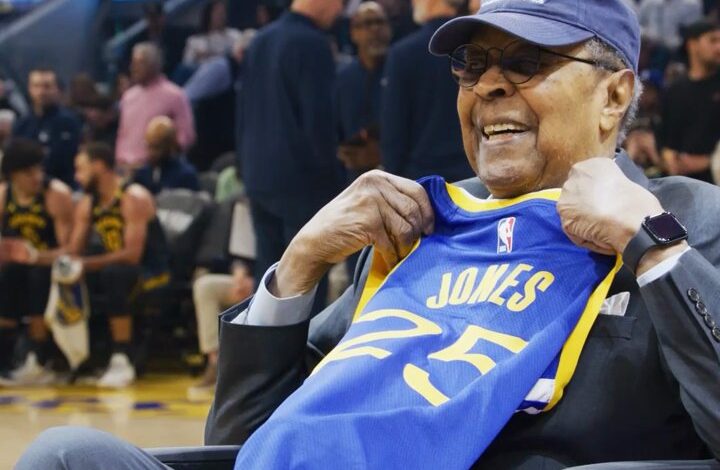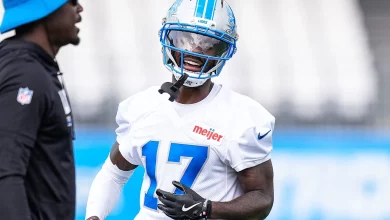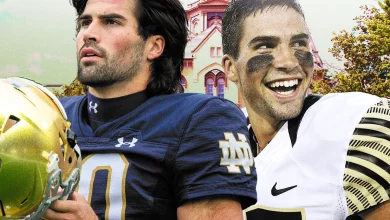The Golden State Warriors pay tribute to Dr. Clarence B. Jones, the author of the MLK address.

The Golden State Warriors Pay Tribute to Dr. Clarence B. Jones, the Author of the MLK Address
In a remarkable display of respect and reverence, the Golden State Warriors have honored one of the most significant figures in American history—Dr. Clarence B. Jones, the man who wrote the iconic “I Have a Dream” speech for Dr. Martin Luther King Jr. This tribute by the Warriors, who have long been committed to social justice initiatives, highlights their dedication to celebrating cultural icons and acknowledging the rich history of the civil rights movement. By paying homage to Dr. Jones, the Warriors not only recognize the legacy of one of King’s closest advisors and speechwriters but also highlight the importance of history, activism, and leadership in their own community.
This tribute offers an opportunity to delve into the life and contributions of Dr. Clarence B. Jones, his pivotal role in the Civil Rights Movement, and the relationship he shared with Dr. King. We will explore how Dr. Jones came to write the speech that would change the course of history, the lasting impact of that speech, and the broader significance of the Warriors’ tribute. Moreover, we will reflect on the Warriors’ longstanding involvement in social justice causes and their commitment to making a meaningful impact both on and off the basketball court.
Dr. Clarence B. Jones: The Man Behind the Iconic Speech
Dr. Clarence B. Jones was not only a close confidant and speechwriter for Dr. Martin Luther King Jr., but also a critical figure in the broader civil rights movement. His work as King’s legal advisor and speechwriter placed him at the heart of some of the most pivotal moments in the history of the United States. Born in 1931 in Philadelphia, Dr. Jones grew up during a time when racial segregation and inequality were deeply entrenched in American society. His academic brilliance and unrelenting commitment to civil rights led him to become one of the most important voices within the movement.
Dr. Jones first met Martin Luther King Jr. in the early 1960s, and their relationship quickly blossomed into one of deep mutual respect and friendship. As a lawyer, Dr. Jones was instrumental in helping King navigate the complex legal and political landscape of the civil rights struggle. More importantly, however, Jones played an essential role as one of King’s primary speechwriters. This connection would eventually lead to his most famous contribution: writing parts of King’s legendary “I Have a Dream” speech delivered on August 28, 1963, during the March on Washington.
The speech itself, delivered before an estimated 250,000 people on the steps of the Lincoln Memorial, became one of the most powerful and enduring moments in American history. In it, King painted a vivid picture of racial harmony, equality, and justice, speaking to the aspirations of an entire generation. It was a call to action, a plea for racial equality, and an emotional plea to the conscience of America. While much of the speech was improvised by King in the moment, the words Dr. Jones crafted laid the foundation for one of the most profound and impactful addresses in the history of civil rights.
Dr. Jones’ role in shaping the speech was not merely to write words but to help frame a vision of the future—a vision that King would bring to life on that historic day. The iconic phrase, “I have a dream,” which has become synonymous with the civil rights movement, was one that Jones helped conceptualize with King, symbolizing the collective dreams and hopes of millions of African Americans yearning for a better life in a nation that had long denied them basic human rights.
Beyond his work as a speechwriter, Dr. Jones was also deeply involved in the logistical side of the March on Washington. He worked closely with King and other civil rights leaders to organize the event and ensure that it would be a turning point in the movement. The success of the March and the speech delivered that day helped lay the groundwork for key legislative victories such as the Civil Rights Act of 1964 and the Voting Rights Act of 1965.
The Warriors’ Tribute to Dr. Clarence B. Jones
The Golden State Warriors have long been a franchise that believes in the power of community, leadership, and social change. Under the leadership of head coach Steve Kerr and the leadership of the team’s star players, the Warriors have used their platform to advocate for social justice and support various initiatives aimed at creating a more inclusive and equitable society. From their outspoken support of the Black Lives Matter movement to their involvement in programs supporting education, racial equity, and mental health, the Warriors have built a reputation as a team that is not afraid to speak up on issues that matter.
The decision to honor Dr. Clarence B. Jones is a natural extension of the Warriors’ longstanding commitment to social justice and equality. The tribute itself came in the form of a ceremony before one of their home games, during which the team recognized Dr. Jones for his remarkable contribution to the civil rights movement. Warriors players, coaches, and executives were in attendance, as were members of the community, local leaders, and several prominent figures from the world of social justice.
During the ceremony, Dr. Jones was introduced to the crowd and given a standing ovation as he made his way to the court. The Warriors’ tribute included a video highlighting Dr. Jones’ achievements and his central role in the Civil Rights Movement, emphasizing his work with Martin Luther King Jr. and the lasting legacy of the “I Have a Dream” speech. Warriors players such as Stephen Curry, Draymond Green, and Klay Thompson took time to meet Dr. Jones personally, expressing their admiration for his work and acknowledging the enduring influence of his contributions.
As part of the tribute, the Warriors presented Dr. Jones with a framed jersey and a plaque recognizing his achievements. The ceremony was more than just a moment of acknowledgment; it was a demonstration of the Warriors’ commitment to honoring figures whose actions and legacy have had a profound impact on American society.
The Significance of the “I Have a Dream” Speech
The “I Have a Dream” speech, as written in part by Dr. Clarence B. Jones, remains one of the most powerful expressions of hope and resilience in the face of adversity. Delivered in the midst of one of the most volatile periods of the civil rights struggle, the speech outlined a vision of a future where all people—regardless of race, creed, or color—could live together in harmony and equality. King’s call for justice, freedom, and the end of racial segregation resonated not only with the hundreds of thousands present at the march but also with people all over the world.
King’s dream, as articulated in the speech, was not just a political goal but a moral imperative. It appealed to the conscience of the nation and to the fundamental values of the American experiment: liberty, justice, and equality for all. The speech remains relevant today, continuing to inspire new generations of activists and leaders in the ongoing struggle for racial equality and justice.
Dr. Jones’ contribution to that speech is not just a footnote in history—it is a key part of the movement’s cultural and political impact. The message of the speech, as envisioned by Dr. Jones and delivered by King, was a call for change that reverberated across the globe, sparking further civil rights actions, social movements, and policy changes. The words “I have a dream” have become an enduring symbol of the hope and the fight for a better future.
The Warriors’ tribute to Dr. Jones brings this history to the present, reminding both the basketball community and the public of the ongoing relevance of King’s dream and the work of the civil rights movement. It also serves as a timely reminder of the role that sports, and particularly basketball, can play in furthering social justice causes and inspiring positive change.
The Warriors’ Legacy of Social Justice Activism
The Golden State Warriors have established themselves as leaders in the world of sports activism, particularly in the realm of social justice. Over the past several years, the team has used its platform to raise awareness about issues such as racial inequality, police brutality, and access to education. Warriors stars such as Stephen Curry and Draymond Green have been outspoken advocates for change, consistently using their voices to amplify important social justice causes.
Stephen Curry, in particular, has used his influence to promote the importance of racial equality and social responsibility. His foundation, Nothing But Nets, provides support to communities affected by racial inequality and access to healthcare and education. Curry has also been a vocal supporter of initiatives aimed at addressing systemic racism and the need for police reform in the United States.
Draymond Green, too, has been a prominent voice in advocating for change. Known for his candidness and willingness to speak out on controversial issues, Green has repeatedly used his platform to advocate for racial justice, equality, and the importance of using sports as a vehicle for social change.
By paying tribute to Dr. Clarence B. Jones, the Warriors further solidify their commitment to social justice and community empowerment. In recognizing the historical significance of the Civil Rights Movement and honoring figures like Dr. Jones, the team continues its tradition of using basketball to inspire positive change both on and off the court.









